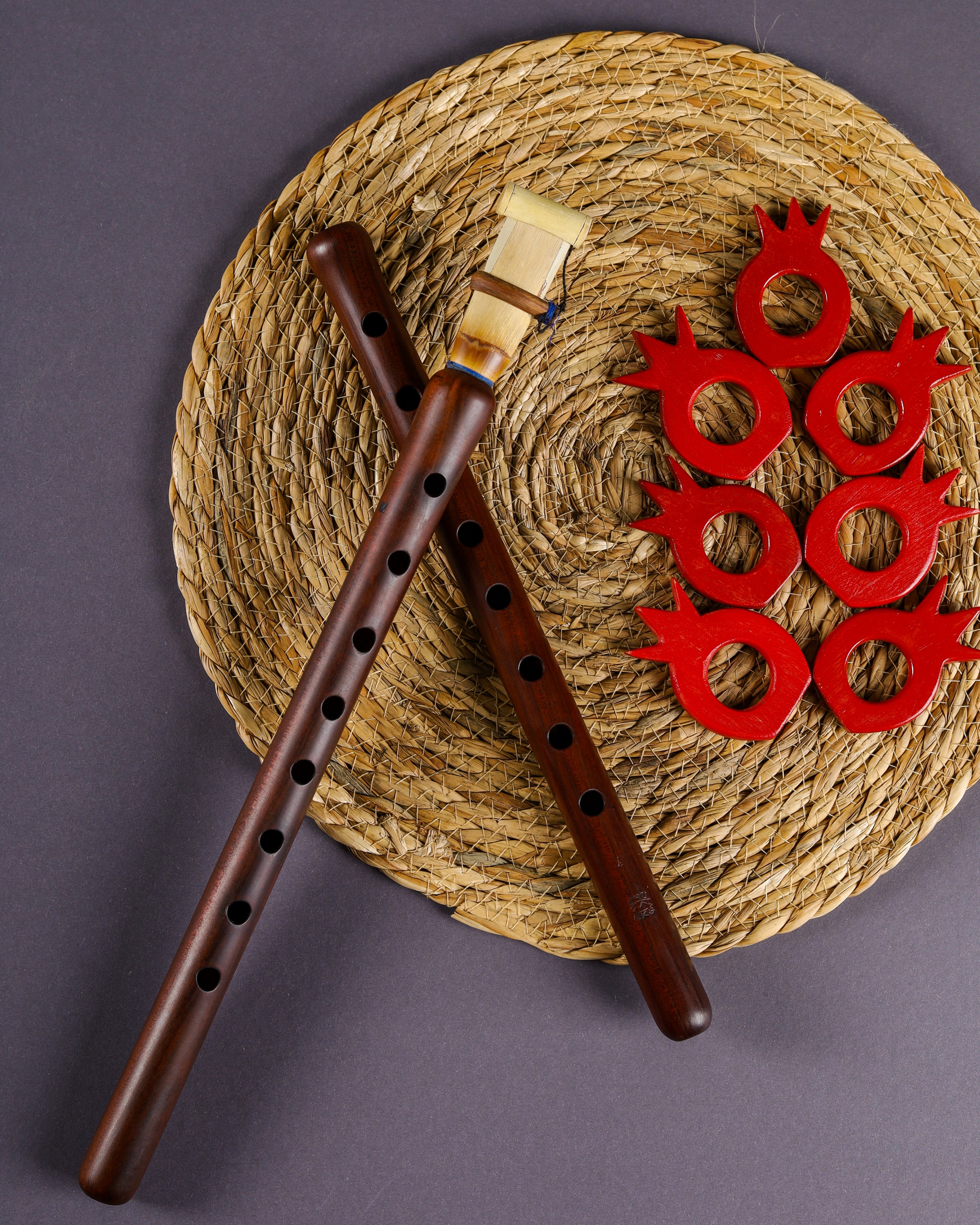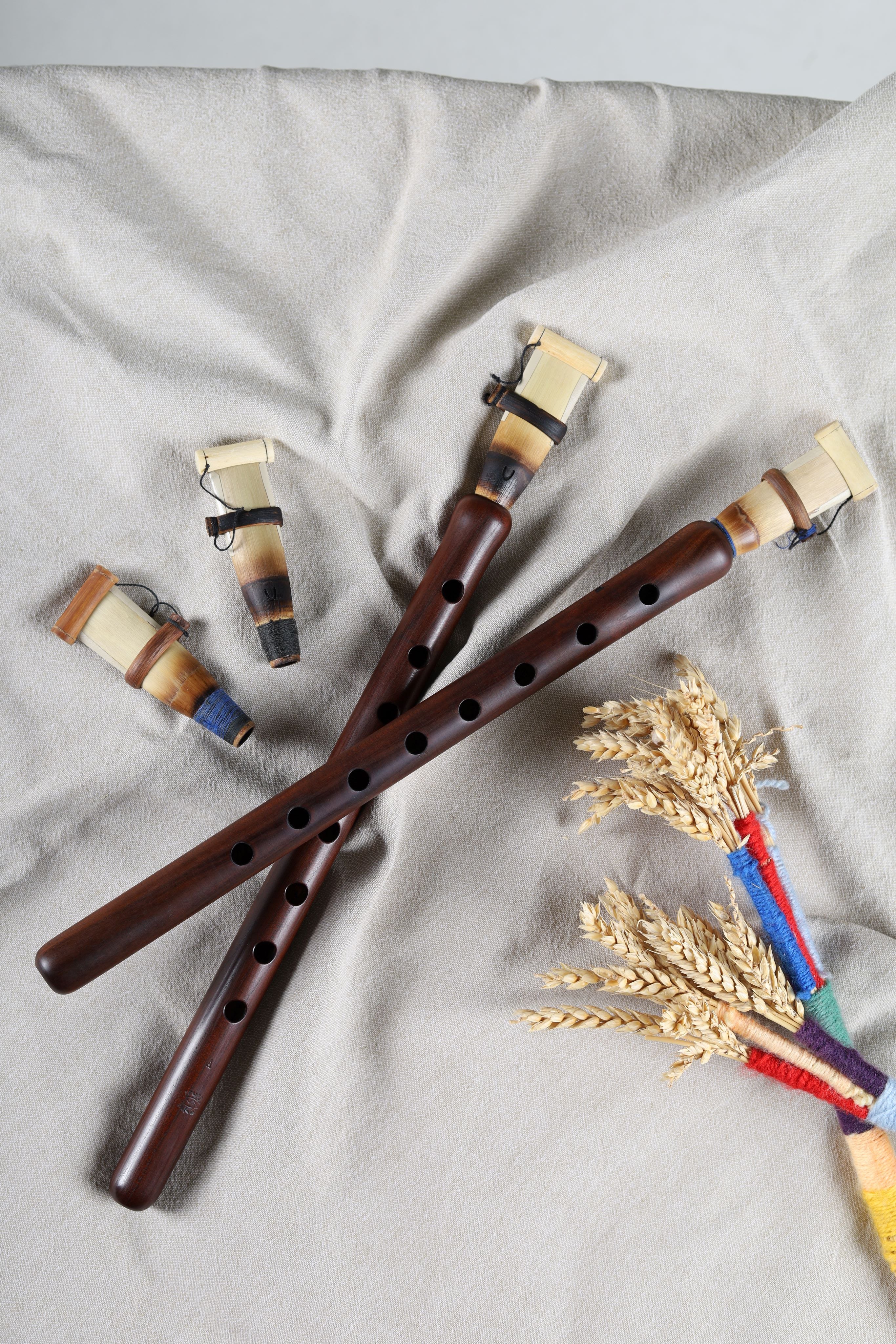Lévon Minassian was born in Marseille, in the Saint-Jérôme district, where his grandparents once found refuge. Surrounded by a family living in the cult of music and immersed in a very close-knit Armenian community fond of sounds, he began playing the mandolin at a very young age in a folk group. At the age of 15, with a Duduk brought back from Armenia by his parents, he announced to them that he wanted to learn to play it. Then begins a long apprenticeship.
As a teenager, Lévon Minassian, accompanied by his family, followed Armenian artists on their tours in France. He chases them to their hotels to gather some information. Then, from the end of the 70s, he went to Armenia several times with the aim of working on Duduk with the masters, notably with Djivan Gasparian and Valodia Haroutiounian. Penetrating the world of these artists was not an easy thing, remembers Lévon Minassian, the Duduk players maintain in secret this ancestral tradition which is only transmitted between initiates and with parsimony. It is then with a lot of self-sacrifice and patience, and out of love for this instrument that he will seek by his own means to master all its subtleties.
Since then, this artist has trained constantly. And little by little, the one who never sought fame will be recognized as one of the most talented Duduk players in the world.
His determination and talent made him spotted by professionals. In 1985, the composer Georges Garvarentz asked him for the music for the film “Les memoires tatoués” . A first collaboration for cinema which will be followed by many others, including the soundtracks of Mayrig and 588 rue Paradis by Henri Verneuil, L'Odyssée de l'Espèce by Yvan Cassar, Amen by Costa Gavras, La passion du Christ by Mel Gibson, The Sleeping Child by Yasmine Kassari, The Earth Seen from the Sky and Home by Yann Arthus-Bertrand, Go, Live and Become by Radu Mihaileanu, The Girl and the Wolves by Gilles Legrand, Like the 5 Fingers of the main and What the day owes to the night by Alexandre Arcady, The source of women by Radu Mihaileanu, Inch'Allah by Anaïs Barbeau-Lavalette.
Behind the man, humble and generous, appears an outstanding musician, whom some describe as a genius, whose melancholic melodies are now omnipresent both on the small screen and in the cinema.
But above all, an incredible event changed his life: in 1992, Lévon Minassian was asked by Peter Gabriel to participate in his album Us and then to open solo concerts on his Secret world live tour. A spotlight which will make him a Dudukist very popular with the big names of variety (Charles Aznavour, Patrick Fiori, Hélène Segara, Christophe Maé, Daniel Lavoie) as well as personalities of world music (Sting, I Muvrini, Simon Emerson, Manu Katché).
At the same time, Lévon Minassian undertook more personal work with the composer of dances and film music Armand Amar, noted since for his film soundtracks (Amen, Le Couperet, La terre vue du ciel, Vas vis et deviens, Indigènes…) is with him that in 1998 he recorded his first album, Lévon Minassian and Friends, designed from traditional secular or sacred themes and melodies in which the Duduk energizes its language by meeting other instruments from the world, from the Indian violin to the oud. In 2005, his second opus, Songs From a World Apart, gave the Duduk a new status as a solo instrument and a musical space outside the traditional context. The arrangements reveal new colors to the duduk dialoguing with guest instruments (nickelharpa, viola d'amore, kamantcha, oud, drums) accompanied by a symphony orchestra, the Bulgarian Symphony Orchestra. Each meeting with musicians from other cultures constitutes for him an enrichment and an unforgettable event.
In 1997, he played at the Elysée, invited as a soloist by the President of the Republic Jacques Chirac during the visit of Armenian President Lévon Ter Pétrossian. In 2003, he was decorated Knight of the Order of Arts and Letters by President Chirac.
Levon Minassian contributed to ensuring that the Duduk became part of universal cultural values, mixing with other instruments from around the world its Armenian influences that were both happy and sad at the same time.
The music that Lévon Minassian gives us no longer belongs to what we call folklore, a museum of dead and resurrected souls, nor to a delimited geographical space called a country, but to this sphere outside of time and duration, where the soul needs to extend itself to discover that it still has one.

